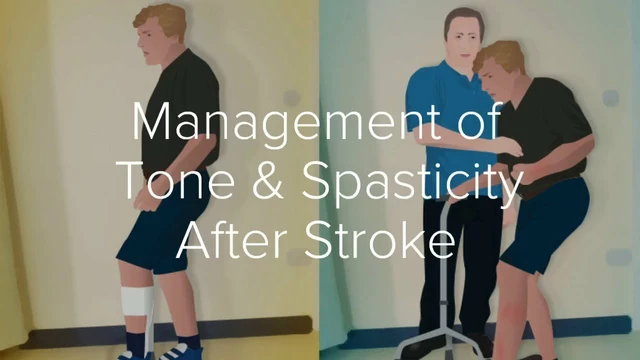The Benefits of Pet Therapy for Alzheimer-type Dementia Patients
Introduction to Pet Therapy for Alzheimer-type Dementia Patients
As a caregiver or loved one of a person with Alzheimer-type dementia, you may be constantly seeking new ways to alleviate the stress and anxiety that often accompany this condition. One innovative approach to providing comfort and emotional support for dementia patients is pet therapy. In this article, I will be discussing the numerous benefits of pet therapy for individuals with Alzheimer-type dementia and how it can significantly improve their quality of life.
Reducing Stress and Anxiety in Dementia Patients
One of the most significant benefits of pet therapy for dementia patients is its ability to reduce stress and anxiety. Interacting with a gentle, friendly animal can have a calming effect on individuals with Alzheimer-type dementia, as it encourages them to focus on the present moment and distracts them from their cognitive decline. Moreover, the physical act of petting an animal has been shown to release oxytocin, a hormone that promotes relaxation and reduces stress levels.
Furthermore, pet therapy can also help dementia patients feel more secure and less agitated in their environment, as the presence of a familiar animal can provide a sense of familiarity and routine. This can be particularly beneficial for those who may be experiencing disorientation or confusion due to their condition.
Improving Communication Skills and Social Interaction
Another advantage of pet therapy for Alzheimer-type dementia patients is its ability to improve communication skills and social interaction. As dementia progresses, individuals may struggle with verbal communication and become increasingly isolated from their loved ones. However, the presence of a therapy animal can encourage dementia patients to engage in conversation, either with the animal itself or with other individuals around them.
Moreover, pet therapy can also help dementia patients improve their non-verbal communication skills, such as facial expressions and body language. This can be particularly important for those who struggle with verbal communication, as it allows them to effectively express their emotions and needs without the use of words.
Encouraging Physical Activity and Exercise
Engaging in regular physical activity has been shown to have numerous benefits for individuals with Alzheimer-type dementia, and pet therapy can be an excellent way to encourage exercise and movement. Walking a therapy dog or engaging in play activities with an animal can provide gentle, low-impact exercise that can help improve overall physical health and well-being.
Additionally, the process of caring for an animal can also encourage dementia patients to engage in routine tasks, such as grooming or feeding, which can help maintain their fine motor skills and cognitive abilities.
Improving Mood and Emotional Well-being
Pet therapy can have a significant impact on the emotional well-being of Alzheimer-type dementia patients, as the presence of an affectionate and attentive animal can provide comfort, companionship, and unconditional love. This can help alleviate feelings of loneliness, depression, and isolation that are often experienced by dementia patients.
Furthermore, the act of caring for an animal can also instill a sense of purpose and responsibility in dementia patients, which can improve their overall mood and outlook on life.
Supporting Memory Recall and Cognitive Function
Interacting with a pet can also help stimulate memory recall and cognitive function in Alzheimer-type dementia patients. For example, reminiscing about past experiences with pets or discussing the therapy animal's characteristics can encourage dementia patients to engage their long-term memory, which can help slow cognitive decline.
Moreover, the sensory stimulation provided by pet therapy, such as the feel of an animal's fur or the sound of its purr, can also promote cognitive function and help maintain neural connections in the brain.
Promoting a Sense of Routine and Structure
For individuals with Alzheimer-type dementia, maintaining a sense of routine and structure can be crucial for managing their condition. Pet therapy can help provide this routine, as the regular visits from a therapy animal can create a sense of predictability and familiarity. This can help dementia patients feel more secure in their environment and better able to cope with the changes brought on by their condition.
Moreover, the act of caring for an animal can also help dementia patients establish and maintain a daily routine, which can provide additional structure and purpose in their lives.
Choosing the Right Pet Therapy for Your Loved One
When considering pet therapy for a loved one with Alzheimer-type dementia, it is important to choose the right type of animal and therapy program to suit their needs and preferences. Some individuals may be more comfortable with a specific type of animal, such as a dog or a cat, while others may prefer a more unique therapy animal, such as a rabbit or a bird. Additionally, it is essential to ensure that the therapy animal is well-trained and comfortable in a variety of environments, particularly those that may be unfamiliar or challenging for dementia patients.
In conclusion, pet therapy can offer numerous benefits for individuals with Alzheimer-type dementia, improving their quality of life and overall well-being. By considering the specific needs and preferences of your loved one, pet therapy can be a valuable addition to their dementia care plan.





Written by Jakob Fitzroy
My name is Jakob Fitzroy, and I am an expert in pharmaceuticals with a passion for writing. I have dedicated my life to studying medication and understanding how it affects various diseases. My goal is to educate people about the importance of proper drug therapy and prevention methods. I have authored numerous articles, providing valuable insights on medication, its development, and its impact on patients. My driving force is to contribute to the ongoing fight against diseases and improve the overall health and well-being of people around the world.
All posts: Jakob Fitzroy